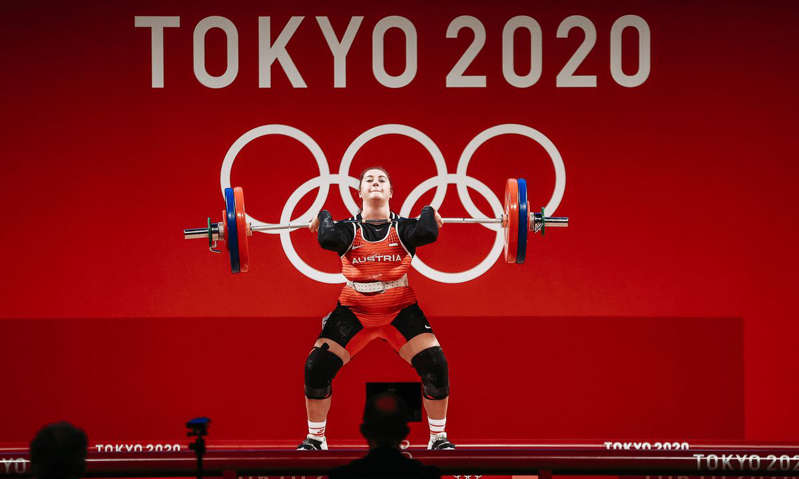
Image: GEPA pictures / Jasmin Walter
Sarah Fischer from Lower Austria landed on Monday at the Olympic Games in Tokyo in the over 87 kg class with a duel of 220 kg in tenth place. As expected, the Chinese world record holder Li Wenwen won with 320 kilos – 140 in the snatch, 180 in the push. Second was British Emily Jade Campbell with 283 kg, who with 161 kg in the push still relegated the American Sarah Elizabeth Robles by one kilo to third place.
Visually, the Lower Austrian appeared to be by far the lightest, i.e. at the lower limit, almost out of place. She had tried to qualify in the class up to 87, but slipped into the open category. Some competitors weighed between 150 and 160 kg, which is why Fischer knew in advance. “The first eight are therefore among themselves.” The difference in performance was also evident in the fact that the Austrian was able to put on 93 kg in the beginning, while the Chinese Li Wenwen started at 135.
The 20-year-old fisherman cleared 93 kg and 97 kg after a failed attempt. It was similar for her pushing: after 117 kg she let herself be put on 123 kg, which she also cleared after a failed attempt. The second attempt was initially given valid, but this was withdrawn after a jury consultation. In the third attempt, she managed the weight in a technically clean way and thus without discussion. “I can be very satisfied,” said Fischer, but also admitted that she did not feel comfortable in the weight class.
Fischer himself said in advance that a result of 230 kg would be a good one. In the end, she stayed ten kilos below the goal she had set herself, but managed to achieve the targeted top ten result. Her best performances are in snatching at 105 kg and in pushing at 132 kg and in duels at 234 kg. This season she came in seventh place in the European Championship in April in Moscow on 99 / 123-222.
The competition in the Tokyo International Forum received a lot of media attention because of the New Zealander Laurel Hubbard. The theater-like hall was actually too full – with regard to corona restrictions – and the atmosphere was accordingly with shouting and applause. Many journalists' requests for admission were denied; preference was given to those nations that had an athlete on stage. The visibly nervous 43-year-old did not finish the competition with the click of dozens of cameras after three failed attempts over 125 kg in the snap. After her off, media representatives stormed the mixed zone. The interest from TV, radio and print was enormous.
When Laurel Hubbard, the first transgender athlete at the Olympic Games, competed, there were not only benevolent comments, opinions differed when it came to fair or unfair. The 43-year-old got the backing of the International Olympic Committee, which saw a sign of openness and inclusion in appearing and referred to the maintained testosterone level. The Belgian Anna van Bellinghen, however, spoke of a “bad joke”. Accordingly, after her departure, the New Zealander thanked the IOC, the Japanese organizers and the New Zealand Olympic Committee.
In any case, before her gender reassignment, Hubbard had a top duel of 300 kg in 1998, and in 2019 she still had a personal best of 285 kg.

